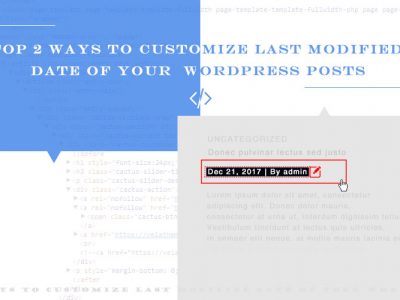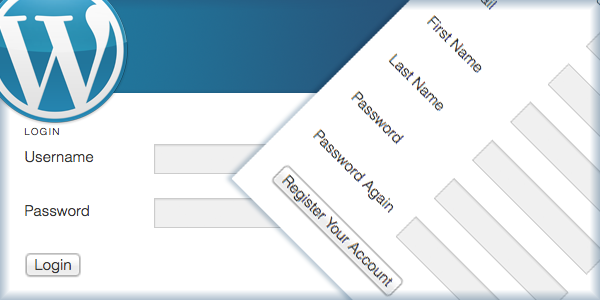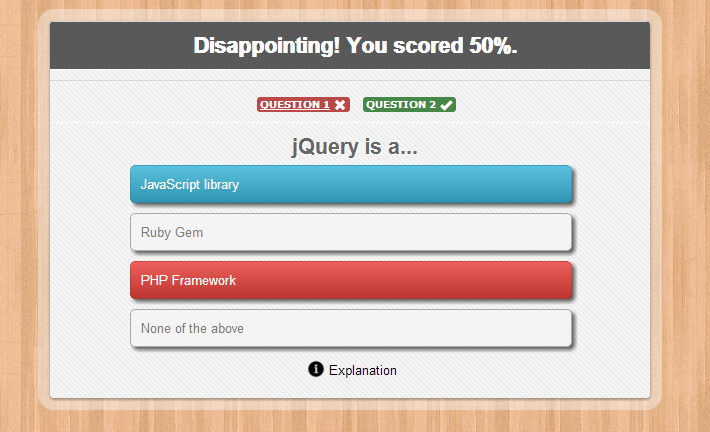
WordPress Glossary Terms–Episode 12
Every beginner blogger knows how tough this whole WordPress thing can be sometimes. Even though WordPress is commonly known as the easiest CMS to use and blogging platform, there are still many things about it that need to be explained. Are you puzzled by strange WordPress terms or abbreviations? Are you looking for a WordPress dictionary that explain these WordPress terms in plain english? Then you are at the right place. Below you can see short descriptions for basic terms related to WordPress.
Subscriber
A subscriber may refer to a user role in WordPress. Usually the subscriber user role has very limited capabilities. Unless the default capabilities are changed, the subscriber user role is the most limited out of all the WordPress user roles. They can create and maintain their profile on a WordPress website, but they can not write or publish articles. Because they can login to the WordPress dashboard and make changes to their profile, this means that they have a very limited ability to modify the WordPress database. Just like with the other user roles, the default abilities of this role can be modified.
With default settings, the subscriber role allows users to login to a WordPress website and leave comments without having to enter their details every time. This role is useful for people who frequently read a blog and are actively commenting. It can make leaving comments on a blog much easier and faster. The subscriber role can also be used to deliver additional content to users such as newsletter or access to the pages and posts that would otherwise be locked.
Subscriber may also refer to a user who has subscribed to a website using an RSS feed, mailing list, or any other feature to receive updates from a website.
Spam
The term spam is used for unwanted user content. In WordPress, it is used for unwanted content submitted by comments, user registration, posts, contact forms, or any other way. A spam message, comment, or content usually contains excessive links, links to unethical or illegal websites. These websites may contain malware that could affect computers of users visiting these web pages. WordPress comment system is frequently targeted by spammers. However, there are several tools and plugins available for WordPress which can help moderate and control spam.
Spam can be detrimental to a website’s reputation if left unchecked. Users and visitors often associate websites with a lot of spam to be in similar categories as malware, spyware and other websites with bad reputations. Search engines may also interpret sites with excessive links as a “link farm” and penalize the website for allowing such type of behavior and content.
WordPress also comes with a bundled plugin called Akismet which helps website combat comment spam. An administrator can activate Akismet from Plugins screen inside WordPress admin area. An Akismet account is required in order to use it and users can sign-up when they go to enable the Akismet plug-in in their WordPress admin panel. Akismet has both free and paid options depending on the type of website and user.
Generally, small personal websites can use the Akismet service for free and bigger or commercial purpose websites must pay to use the service. There are also other plug-ins available to fight the various other forms of spam mentioned above.
Splog
Splog or Spam Blog is a blog created for the sole purpose of linking to other associated websites. Some common characteristics of spam blogs are:
- Splogs contain meaningless or repetitive content. Articles on similar topics are often repeated using a few targeted keywords excessively throughout the content.
- Splogs usually contain little or no information about the blog author. Most of the time, the author information is fake.
- Articles on a spam blog look like they were created using article spinner software. An article spinning software rephrases an article using synonyms.
- Spam blogs often contain content stolen from other blogs and websites.
- These blogs contain excessive links to one or multiple affiliate sites with affiliate code in the links
- May contain links to unethical or illegal websites.
Spam blogs are used to manipulate search engine results. Sometimes they are created for the sole purpose of occupying search engine rankings on a certain keyword. Many online scam websites usually create spam blogs for keywords they suspect their target audience would search for to find reviews about their scam website.
These blogs are also created to display advertisements. These kind of blogs create a network of websites targeting different keywords and displaying advertisements. They also display poorly written, repetitive, and/or scrapped content.
Search engines are getting better at identifying spam blogs. However, sometimes a legitimate blog or website could get wrongly flagged by search engines as spam. Website owners can then ask the search engine’s support team to manually review their website and unmark it as spam. Website owners can also review their website on their own to find out why search engines might have confused their website for a spam blog. They can change their content based on the guidelines provided by search engines to get their search rankings back.
Shared Hosting
Shared Hosting is a term used for web hosting service plans where multiple websites share the resources of a large web server. Many WordPress web hosting providers offer shared hosting plans at extremely affordable rates ranging anywhere from $3.95 per month to $9.95 per month. Shared web hosting plans are by far the cheapest and most affordable than other web hosting plans such as VPS or Dedicated server.
Due to their low cost, shared web hosting plans are considered ideal for small businesses, blogs, and portfolio websites. Most beginners don’t need anything more than the shared web hosting. We always recommend to keep your costs low when starting out and work your way up. You don’t need to spend money on resources that you don’t need.
Are you wondering why shared hosting is so cheap? Well by having multiple sites on the same server, web hosting companies can simply provide the service at a much more affordable rate. Think of this way. If you rent a house by yourself, then you are responsible for paying all the rent. If you have roommates, then you split the rent amongst everyone which makes the amount owed by each person to be a lot lower. To put things in perspective, a dedicated web server starts at somewhere around $150 per month and can go into thousands of dollars per month.
Screen Options
Screen Options is a fly down menu button located on the top right corner of some pages in your WordPress admin area. When clicked, Screen Options menu shows options to configure the view of that particular page in your admin area. It usually contains check boxes to show and hide different sections of an admin screen. It may also contain the option to choose the number of items to display on the admin screen (for example, you might want to see more than 20 comments when moderating them).
Options in the Screen Options menu change from one admin screen to another. The reason behind having screen options is to give the user (you) as much control as possible. The screen option allows you to display, hide, and customize sections on the admin screen. For example, in WordPress post edit screen, a user can choose to hide the discussion meta box, category selector, or custom fields from the post edit screen if they don’t use it that often.
SEO
SEO or Search Engine Optimization is a term used to describe practice and methods to optimize a web site for better representation in search results. These practices and methods are usually based on the rules and best practices provided by the major search engines such as Google, Bing, Yahoo! and other major search engines. The guidelines from most of the major search engines are pretty similar to each other. They generally promote use of organic backlinks, relevant and unique content, genuine discussions on the topic and discourage spam links, posts, and contents.
The purpose of these best practices is to make web pages more easily discoverable by search engines and proper indexing of the web pages of the information. WordPress is already a very search engine friendly content management system, however, users can further optimize their WordPress powered websites by modifying certain settings or by using WordPress SEO plugins.
Improving the SEO of a website would only make it more easily discoverable and properly indexed by search engines. It is not necessarily true that a website with good SEO practices would gain better results in search engines or get more traffic. However, search engines are still a vital source of traffic for many websites so it is important that their websites follow these SEO guidelines.
Some of the things that can affect SEO include: web page title (Article or Post Title in most cases), the URL structure (how descriptive it is), length and importance of content, and many other smaller factors.








